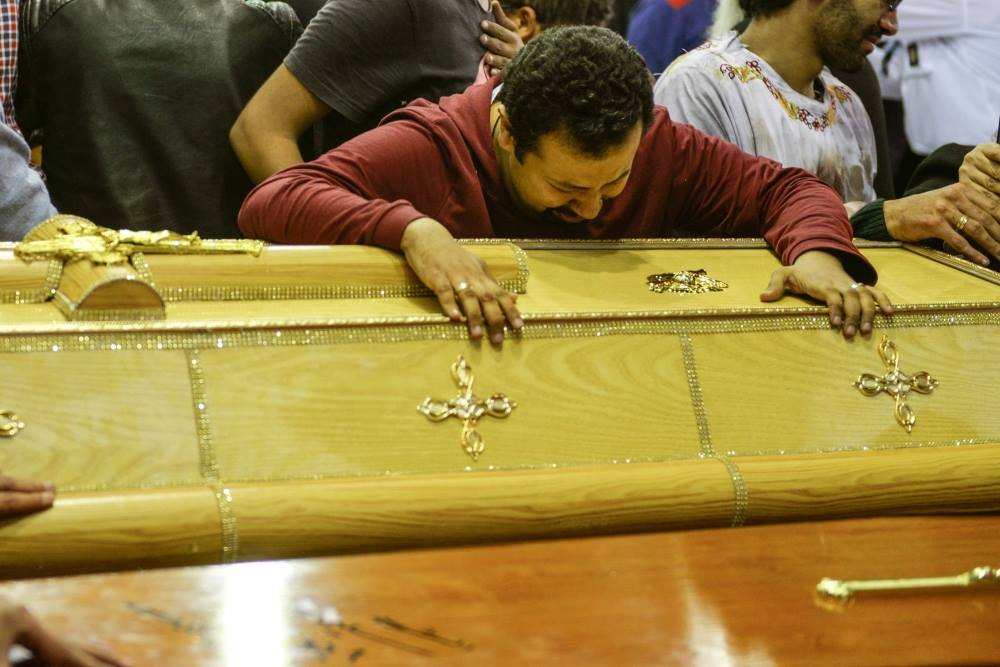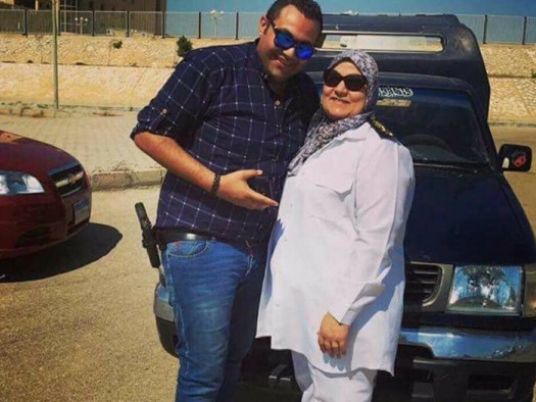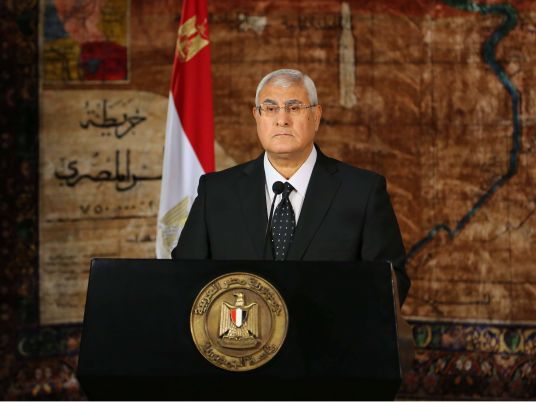
Nearly 1,000 people have been killed at the hands of army and security forces since the revolution broke out on 25 January 2011.
One year later, it seems everyone is keen to take up the cause of the martyrs. But amid calls for celebrations on the eve of the revolution’s anniversary, the families of those killed are vowing to keep the revolution alive until justice is served and the people who murdered their relatives are brought to trial.
From the ruling military junta to the Islamists who dominate the newly elected Parliament to the street activists who continue pushing for change, everyone is trying to use the revolution’s martyrs for their own cause.
“The martyrs were the fuse of this revolution. If it weren’t for the martyrs, the revolution would have never occurred, yet their retribution has yet to come,” said Ashraf Sayed, whose brother Mohamed was killed in front of the Imbaba police station on 28 January 2011.
Sayed, along with dozens of martyrs’ relatives, marched to the Parliament building on Monday during the first session of the post-revolution People’s Assembly.
According to official figures, 846 were killed by police in the early 18 days of protests before the Supreme Council of the Armed Forces took over power from Mubarak on 11 February. Since then, about 100 more protesters have been killed by both Interior Ministry and military forces.
“I feel my brother’s blood has gone to waste, the revolution’s demands were not achieved. We are here today to ask MPs that retribution for martyrs should come at the top of their agendas. We wish that justice prevail and law is enforced not only on the people but also on ministers and officers equally,” added Sayed.
Chants of “I swear with the martyr’s blood, there will be another revolution,” “O martyr, rest in peace and we will continue the fight,” “We won’t dance or sing, the martyr is one of us,” could be heard during a Monday march responding to statements by the SCAF and the Muslim Brotherhood about holding celebrations on the revolution’s anniversary on Wednesday.
“Wednesday is not a celebration. For them, this is a celebration because their hearts are not burning like us. But for us, it’s a new revolution,” said Olfat Mohamed, mother of Islam Ali Abdel Wahab, a law student who was killed on 28 January while protesting in Sayeda Zeinab square.
The court acquitted the five police officers who were being tried for killing five protesters and attempting to kill three others in Sayeda Zeinab last month, on the grounds that they acted in self-defense as protesters attacked them and torched the police station.
Only one of the 150 police officers implicated in killing protesters during the 18-day uprising received a death sentence in absentia, while neither policemen nor military soldiers who killed protesters in later clashes has stood trial yet.
“I still feel the injustice, there is no change. We want another revolution and another trial to get back our son’s rights. I request the MPs to stand for our rights,” added Mohamed.
Mohamed also called on all Egyptians to take to the streets on 25 January and stand united in solidarity with the martyrs.
Over the past month, state-run newspapers have devoted a headline almost daily about government efforts to compensate the revolution’s victims through establishing the National Council for Care of Martyrs’ Families and Wounded, which oversees free medical treatment for all the injured and provides financial compensation to them and families of those killed in the past year.
The SCAF has also announced that all the wounded will be given government jobs and bronze medals, along with armed forces personnel who have served since the revolution erupted.
“We didn’t ask them for financial compensation or pensions. They are doing that only to pacify people’s anger. All we want is fair trials. Those who killed our sons and daughters have to be executed,” said Sanaa Saeed, whose son Moaz Kamel, 20, was killed by four bullets in Tahrir Square during the 18-day revolt.
“I want to feel that my son’s death made a change. All these new political parties were founded on the blood of martyrs. But we don’t know what to expect any more; we don’t trust trials, judges and even lawyers,” she said while protesting outside the parliament building, adding that 25 January is a day to remind of the need for retribution for the martyrs.
In his first speech during the first People’s Assembly session Monday, Saad al-Katatny , the FJP speaker of the body, mentioned the martyrs’ first priority.
“We will never betray the martyrs’ blood and the sacrifices of the revolution’s wounded,” said Katatny, whose party list achieved a landslide victory of about 47 percent of People’s Assembly seats.
However, protesters have criticized the Muslim Brotherhood and FJP for political opportunism, due to their cold statements on the recent crackdown on protesters, while they urged people to focus on elections instead.
“I came here today to see those whom I voted for. I gave them my vote and they have to get my son’s retribution,” said Tafida Abdel Wekil, whose son, Mohamed Ashraf, 24, was killed in military prison in Dahshour.
Wekil, who lives in Sharabeya, told Egypt Independent that she voted for FJP candidates in the People’s Assembly elections.
In a bid to revive the revolutionary sentiment and mobilize people for protests, 76 activist groups announced that the week ahead of 25 January 2012 would be a week of mourning for the revolution’s martyrs. They have been organizing almost daily marches in the name of martyrs, urging people to wear black and hang black flags from their balconies as a show of solidarity.
“We believe that the cause of the martyrs and their families is a winning one because they are the people with most forsaken rights. So exercising pressure through them is what will bring about fair trials,” said Ramy Ghanem, lawyer and member of the Socialist Popular Alliance Party, which is among the organizers of the protests.
In the few months leading up to the 25 January revolution, the defaced picture of 28-year-old Khaled Saeed, who was beaten to death by two policemen in Alexandria, became emblematic of Egypt’s problems under Hosni Mubarak. Many believe Saeed’s murder was the initial spark for the uprising. And a TV interview with Wael Ghonim, the administrator of the “We are all Khaled Saeed” Facebook page, during which he wept on air after seeing pictures of the revolution’s martyrs, possibly brought millions to the streets to demand Mubarak leave office.
“The martyr issue doesn’t only mobilize people, but is also what touches them the most, because we feel we are all martyrs-to-be. Every one of us has seen someone shot dead or be injured beside him in a protest. So it’s a matter of revenge between us and them. I could have died in the street just like any one of them. So we hold on our shoulders the responsibility toward the wounded and the martyrs’ families. We won’t give up or forget,” Ghanem told Egypt Independent.
Alia Mosallam, an activist, believes that the SCAF, government, Parliament and activists are all using the issue of the martyrs because it is politically invincible.
“These people didn’t just simply die. They died because they felt that risking their lives would actually improve their living conditions. This is what makes them martyrs, which in turn is a national cause and this is why it has become a revolution,” said Mosallam.
However, as the year comes to an end, the issue of martyrs doesn’t seem to have the same powerful impact on people as it used to during the early days of the revolution. Last Friday’s Cairo protests, which were supposed to be devoted entirely to the martyrs, attracted only few protesters to Tahrir Square.
According to Mosallam, activists are using the martyr issue as a way to make people feel guilty and get mobilized. However, martyrs are reduced to numbers and nobody is talking about the feeling of loss that these people’s families experience, she said.
“Justice is at the core of [this struggle] and these people died for something that hasn’t materialized until today,” said Mosallam.




